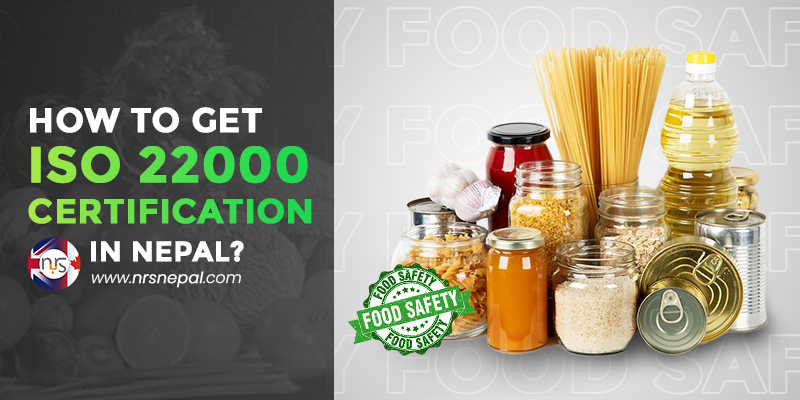
Acquiring an ISO 22000 certification in Nepal signifies a commitment to ensuring food safety and quality management within your organization. This internationally recognized ISO standard sets the benchmark for food safety management systems. It also provides a framework for organizations to identify, control, and mitigate food safety hazards within their manufacturing process. Follow this comprehensive guide to navigate through the food safety management certification process in Nepal.
Steps for getting ISO 22000 certification in Nepal
- Understanding ISO 22000: Before diving into the certification process, it's essential to grasp the fundamentals of this ISO. This standard outlines requirements for a food safety management system that integrates key principles such as hazard analysis, risk assessment, and continual improvement.
- Conducting a Gap Analysis: Start by assessing your organization's current food safety practices against the requirements of ISO 22000. Identify any gaps or areas for improvement that need to be addressed to meet the standard's criteria.
- Food Safety Management Team: Establish a dedicated team responsible for overseeing the implementation of ISO 22000 within your organization. This team should consist of individuals from various departments with expertise in food safety management. With this, you are a step closer to acquiring ISO 22000 certification in Nepal.
- Documentation: Create and document your food safety management system according to the requirements of ISO 22000. This includes developing policies, procedures, and work instructions that outline how food safety hazards will be identified, controlled, and monitored.
- Implementing Controls and Procedures: Put the necessary controls and procedures in place to effectively manage food safety hazards. This can involve implementing Good Manufacturing Practices (GMPs), conducting hazard analysis, and establishing Critical Control Points (CCPs) to prevent, eliminate, or reduce food safety risks.
- ISO 22000 Training and Awareness: Ensure that all employees are adequately trained and aware of their roles and responsibilities concerning food safety. Training programs should cover topics such as hygiene practices, food handling procedures, and the importance of adhering to the latest ISO 22000:2018 standards. These are the minimum tasks and roles your company should do to achieve an ISO 22000 certification in Nepal.
- Internal Audits and Reviews: Regularly conduct internal audits to assess the effectiveness of your food safety management system and identify areas for improvement. Reviews should be carried out by a qualified ISO auditor who is independent of the areas being audited.
- External Certification Body Selection: Choose a reputable ISO certification company accredited by the ISO to conduct the ISO certification audit. Verify their credentials and ensure they have experience in auditing food safety management systems.
- Certification Audit Preparation: Prepare thoroughly for the ISO certification audit. Conduct mock audits, review documentation, and address any non-conformity identified during internal audits. This is the last hurdle for ISO 22000 certification in Nepal and the certification body does the rest.
- Certification Audit and Issuance: The certification audit will involve an assessment of your food safety management system's compliance with ISO 22000 requirements. If successful, the certification body will issue ISO 22000 certification, demonstrating your organization's commitment to food safety excellence.
Achieving ISO 22000 certification in Nepal requires dedication, diligence, and a commitment to continuous improvement. By following these steps and working collaboratively with your team, you can successfully navigate the certification process and ensure the highest standards of food safety within your organization. At the same time working with other ISO standards as 9001 provides a layer of reassurance and trust among consumers.